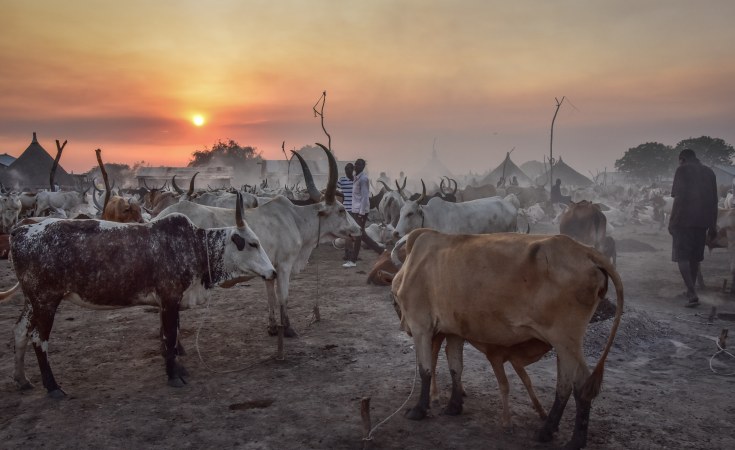The emergence of carbon credits trading in Zimbabwe has witnessed various remote communities benefitting through life-changing infrastructural development projects despite the onslaught by Western media painting a gloomy picture of the environmental action, a conservation expert has said.
Carbon credits were devised as a mechanism to reduce greenhouse gas emissions. They are a transparent, measurable and results-based way for companies to support activities, such as protecting and restoring irrecoverable natural carbon sinks, like forests or marine ecosystems and scaling nascent carbon removal technology, that keep global climate goals within reach.
In short, carbon credits create a monetary incentive for companies to reduce their carbon emissions.
By buying carbon credits, companies and individuals can reduce their carbon footprint by preventing emissions elsewhere. For example, credits can generate funds to pay for the protection of a specified area of natural forests, which remove and store climate-warming carbon from the atmosphere.
Big money is pouring into renewable energy and offsetting emissions using carbon credits. Meta, Apple, and Netflix are among the tech giants leading the charge towards net-zero targets by 2030.
Speaking to NewZimbabwe.com, conservationist Charles Ndondo said Zimbabwe is positioned to lead the carbon trading space in Southern Africa after launching the Voluntary Carbon Credits (VCCM) and the recent promulgation of Statutory Instrument (SI) 150 of 2023, which governs the trading of carbon credits in the country.
He said the immense benefits that local communities have accrued through the successful implementation of biodiversity protection and preservation had rattled some powerful nations.
"New developments have incensed the Western world which is worried why such a small country in Southern Africa has taken strides in preserving its environment through enacting laws and regulations enabling its indigenous citizens to participate in carbon trading," he said.
Ndondo is the managing director of Carbon Green Africa, which has lately been on the receiving end of Western media, and accused of failing to make meaningful impacts on the communities it operates.
He noted allegations of financial sleaze and corruption levelled against Zimbabwean carbon credit holders were meant to tarnish their image ahead of the crucial 2023 United Nations Climate Change Conference, more commonly referred to as COP28.
This year's COP28 edition will be held from November 30 to December 12 at the Expo City, Dubai, United Arab Emirates (UAE).
"In an effort by the West to inhibit the smooth trade in carbon trading, the Western media has been in overdrive to discredit one of the biggest carbon trading projects, Carbon Green Africa, which has operated since 2011 and has gone through five very successful verification and validation processes at a Gold Standard level.
"How curious and correct could be this timing for the Western media to discredit a project that has gone past five international audits yet Zimbabwe has just made strides through launching the AVCCM (African Voluntary Carbon Credits Forum) which was held in Victoria Falls from July 5--7, 2023," Ndondo said.
Another similar forum was held in South Africa from October 19-20, 2023 while the Government of Zimbabwe enacted SI 150 of 2023 and invited existing projects to regularise their operations to conform with new laws.
Despite being a novel initiative locally, carbon credit trading has taken off tremendously, with another flagship project, Kariba REDD, getting recognition locally and beyond.
"It (Kariba REDD) is poised to thrust Zimbabwe on a pedestal and high standing during the COP28, and as such the Western media has decided to discredit the country at large and in particular the Kariba REDD.
"The world is aware that Zimbabwe has just signed a memorandum of understanding (MOU) with Dubai's Blue Carbon company to develop more carbon projects in the country. Therefore, the Western media believes that discrediting the Kariba REDD means any other carbon credit projects in the country will be discredited.
"Zimbabwe is suffering from sanctions imposed by the West which inhibited financial inflows into the country and this has mostly affected the ordinary rural populace," said Ndondo.
There have been sustained efforts to dissuade international corporations from buying carbon credits generated out of Zimbabwe, a development which has the potential to disadvantage communities already witnessing transformation.
The Carbon Green boss emphasised there is a need to lobby for the uptake of local conservation programmes in light of negative publicity.
"We need to take note that it is the same Western media that discredited the Belarus credits which were offered to AVCCM saying they were not genuine and non-beneficial.
"It is time Zimbabwe and the rest of Africa join hands and be given a fair opportunity to trade carbon credits without malicious investigations."
Zimbabwe, Ndondo added, has made tremendous inroads in regularising carbon credit operations and giving visibility to local entities working on various projects that are changing lives.
He reiterated that communities in Kariba, Mbire, and Binga districts have benefitted from the trading of carbon credits through the construction of a clinic, an environmental court, bee-keeping projects for hundreds of villagers, and a horticulture garden.
In Kariba, classroom blocks and teachers' houses construction, among other projects, have been undertaken courtesy of proceeds of carbon credit trading.


